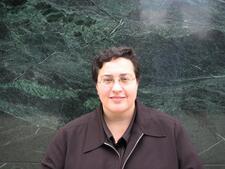Education
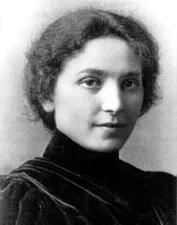
Senda Berenson
Known as the “Mother of Women’s Basketball,” Senda Berenson pioneered women’s basketball as the director of the physical education department at Smith College in Northampton, Massachusetts. Many of the rules she developed for women’s basketball became the standard ones used for seventy years.
Raissa L’vovna Berg
Raissa Berg worked was an eminent geneticist until Soviet Russian policies forced her out of her job. Nevertheless, she continued her research at home, eventually discovering “correlative Pleiades” in plants, and later contributed significantly to the reestablishment of the scientific field of genetics in Russia during her brief reinstatement. After emigrating to the United States, Berg remained active until her death in 2006.
Leah Bergstein
Leah Bergstein was the first of the choreographers in Palestine who, at the beginning of the 1930s, created festival dances at kibbutzim that depicted life in pre-state Israel and on agricultural settlements. The unique festival pageants she created, often with poet-composer Mattityahu Shelem, contributed to the development of rural Israeli festivals and holiday celebrations and the creation of the first Israeli dances.
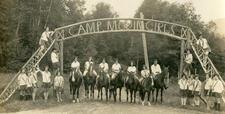
Libbie Suchoff Berkson
Libbie Suchoff Berkson was beloved by generations of campers as Aunt Libbie, director of Camp Modin for girls. She helped to establish the Jewish summer camp and ran it for decades, even while living in Israel and working on several other projects, such as a kindergarten and a teahouse.
Beatrice Berler
Beatrice Berler was an award-winning translator of Spanish-language novels and history and a renowned community activist. She worked in women’s fashion for over twenty years before returning to school at the age of forty-five, eventually becoming nationally recognized as a literacy activist.
Rayna Batya Berlin
Rayna Batya Berlin was a Lithuanian woman committed to religious study who argued that women should be able to study the Torah and the Talmud. The only source of her life was written by her nephew, who describes her frustration with her subjugated status in her community and how she generally suffered in silence.
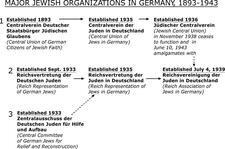
Cora Berliner
Cora Berliner was an economist and social scientist who held leadership positions in several major Jewish organizations in Germany between 1910 and 1942. These organizations included the Association of Jewish Youth Organizations in Germany, the Reich Representation of German Jews, and the League of Jewish Women.

Clementine Bern-Zernik
A lawyer by training, Vienna-born Clementine Bern-Zernik produced broadcasts for the US Office of War Information in London during the war, served as the director of a Displaced Persons Camp in post-war Germany, and spent the last 50 years of her life as a UN liaison to the New York Public Library. Throughout her life she maintained a strong Austrian identity and was a founding member of the Austrian-American Federation.
Jessie Bernard
Sociologist Jessie Bernard’s feminist epiphany came at age 67 in 1969, but her earlier work anticipated feminist theory by discussing the differences between men’s and women’s experiences and arguing that quantitative studies did not accurately represent women’s stories.
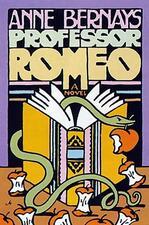
Anne Fleischman Bernays
Anne Fleischman Bernays is an American editor, novelist, and nonfiction writer. Her literary work is notable for its exploration of Jewish experiences of America, the pressure of assimilation, and the then-taboo subject of sexual harassment.
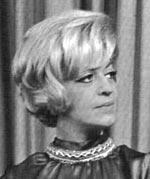
Yara Bernette
Raised in Brazil, world-renowned pianist Yara Bernette began studying piano with her uncle, a major Brazilian classical musician of his day. She toured across the world and became the head of the piano program at the Hamburg Music and Performing Arts School.
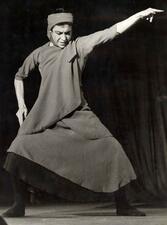
Deborah Bertonoff
From her debut at age nine through her performances in her late seventies and teaching into her late eighties, Deborah Bertonoff made dance her life’s work. Bertonoff began studying at the Bolshoi School before moving to Israel and joining the Habimah Theater. After studying dance in Europe she began choreographing, and in 1944 she founded a dance studio. She was honored with the 1991 Israel Prize.
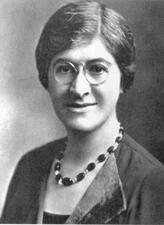
Adele Bildersee
A feminist before her time, Adele Bildersee was an advocate for women in education. She graduated with the first class of the then all-women’s Hunter College in 1903 and went on to help found Brooklyn College, serving as both its dean of students and its director of admissions.
Gertrud Bing
Art historian Gertrud Bing was a key figure at the Warburg Institute, a research library focused on the afterlife of antiquity in the art of the Renaissance. Beginning as personal assistant to the Institute’s founder, Aby Warburg, and ultimately becoming its director, Bing helped develop and disseminate iconology, a methodology that investigates the social, historical, and cultural meanings of themes and subjects in artworks and that transformed twentieth-century art history.
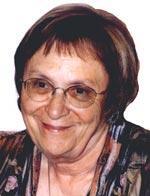
Yehudith Birk
In 1977, biochemist Yehudith Birk became the first woman to serve as a dean at the Hebrew University. An internationally renowned scientist for her studies of legume seed proteins and proteinase inhibitors, she won the 1998 Israel Prize for agricultural research.
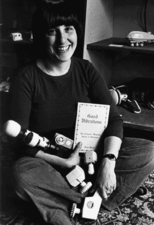
Joani Blank
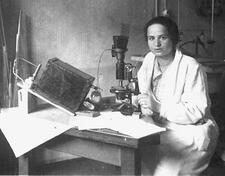
Marietta Blau
German physicist Marietta Blau joined the Institut für Radiumforschung, where she developed an emulsion technique for recording the tracks of particles that allowed her to detect neutrons and observe nuclear disintegration caused by cosmic rays. Forced to emigrate in 1938, worked for the US Atomic Energy Commission and later taught at the University of Miami. Throughout her career, she faced discrimination for her religion and gender and was denied paid work.
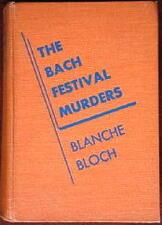
Blanche Bloch
Blanche Bloch helped open new opportunities for women in music as both a founding member and conductor of the New York Women’s Orchestra. Bloch collaborated with her husband, Alexander Bloch, performing, writing operettas, and delivering joint concerts and music lectures. Bloch also authored two mystery novels.
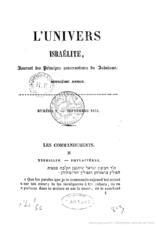
Julienne Bloch
Julienne Bloch was a writer and educator who used her career to strengthen the Jewish community in nineteenth-century France by pushing back against the assimilation and secularization of her fellow French Jews, especially Jewish women.

Gertrud Bodenwieser
A member of the first generation of modern dancers in Vienna, Gertrud Bodenwieser developed her own style of modern Ausdruckstanz (expressionist dance). From her studio in Vienna, she established the Bodenwieser Dance Group and went on to tour Europe, Japan, and Columbia. In 1938, she immigrated to Australia and played a significant role in the development of modern dance there.
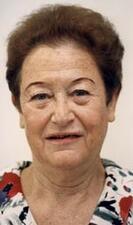
Batsheva Bonne-Tamir
Batsheva Bonne-Tamir (1932-2020) was one of the first human population geneticists in Israel. She is mostly known for her studies on genetic markers and genetic diseases among the Samaritans.
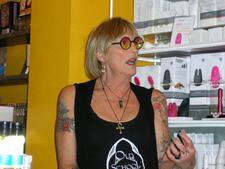
Kate Bornstein
Kate Bornstein is a pathbreaking transgender lesbian activist, theorist, and performance artist. She is known for tackling social ills and personal pain with joyful optimism.
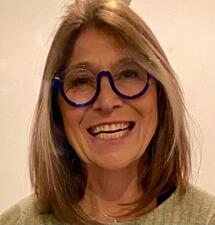
Analía Bortz
Analía Bortz is the first Latin American woman ordained as a Conservative rabbi. Her approach to spirituality and religion combines with her medical training. As a doctor specializing in bioethics, she has also helped women and couples with fertility issues.
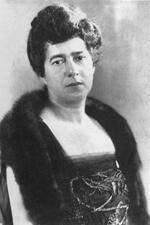
Rose Brenner
As president of the National Council of Jewish Women, Rose Brenner focused on inclusion of people who were often marginalized—the deaf, the blind, and those isolated in rural areas.
